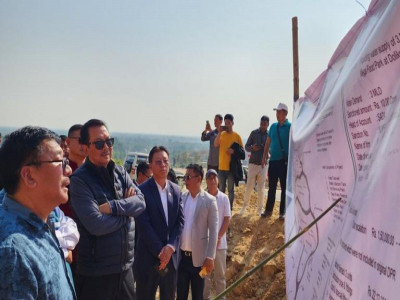
Jonaki Cinema: The Beacon of Assam’s Cinematic Legacy and Cultural Heritage
Jonaki Cinema, established in
1937, is not just Assam’s oldest movie theater but also a testament to the
visionary spirit of RupkonwarJyoti Prasad Agarwala, a luminary
in the realm of Assamese cinema and culture. After completing the first
Assamese film, Joymoti in 1935, Agarwala realized there were no
permanent cinema halls in Assam for regular screenings. Thus, he embarked on an
audacious journey to build Assam's first purpose-built cinema hall in his
hometown, Tezpur.
Despite skepticism from those
around him, Agarwala's pioneering zeal pushed forward the construction of
Jonaki, which was built in a matter of weeks. The hall was constructed using
iron trusses, bricks, lime paste, and wooden balconies, signifying a blend of
local materials and ingenuity. The hall’s original dimensions were modest, but
the sheer effort in its creation was groundbreaking. Located behind the
Agarwala family home, the hall was named Jonaki (meaning
'firefly')—a metaphor for bringing light and entertainment to the people.
In the year of its inauguration,
1937, Jonaki opened its doors with the screening of Elephant Boy, a
British film that starred SabuDastagir, an Indian boy. The film drew crowds,
and Jonaki became a beacon of cinematic culture in the region.
Though Jonaki had an initial run
of success, its fortunes began to dwindle due to the small town's limited
audience and the challenges of sustaining a regular film exhibition business.
As Jyoti Prasad Agarwala shifted his focus to other cultural and political
activities, Jonaki was leased to Abdul Hussain, a local businessman, but
business continued to decline. Eventually, the government canceled the hall's
license due to structural weaknesses.
It was Agarwala’s youngest
brother, HridayanandaAgarwala, who revived Jonaki. After a
series of renovations and repairs, Jonaki reopened in 1941
with a screening of Blockhead, a Laurel and Hardy classic.
Hridayananda’s dedication kept Jonaki afloat, even during World War II when
Tezpur became a hub for Allied forces, who frequented the cinema.
Throughout the decades, Jonaki
remained an important cultural landmark, witnessing the highs and lows of
Assamese cinema and the entertainment industry. By the 1960s, Assam's cinema
scene was thriving, and Jonaki expanded its seating capacity to 1,000. However,
as television and home video became more accessible in the 1980s and 1990s,
single-screen theaters like Jonaki faced tough competition.
Despite these challenges, the
Agarwala family persevered. In 2009, Jonaki embraced the digital era, screening
the Oscar-winning film Slumdog Millionaire as its first digital
presentation. This step revitalized the cinema, drawing in new audiences and
rekindling its former glory.
Jonaki’s story is not just about a
cinema hall but also about the resilience and passion of the Agarwala family,
who fought to keep Jyoti Prasad Agarwala's vision alive. Today, Jonaki remains
a cultural institution, a reminder of the early struggles and triumphs of
Assamese cinema. While multiplexes may dominate the modern landscape, Jonaki’s
enduring legacy is a testament to the pioneering spirit that gave birth to
Assam’s cinematic journey.
Jonaki continues to serve as a
vital thread in Assam’s cultural fabric, symbolizing the early days of cinema
in the state and the dedication of its founding family. It stands as a living
tribute to RupkonwarJyoti Prasad Agarwala, whose contributions
to Assamese culture transcend cinema.
Disclaimer: The opinions expressed in this article are those of the author's. They do not purport to reflect the opinions or views of The Critical Script or its editor.

Newsletter!!!
Subscribe to our weekly Newsletter and stay tuned.

















Related Comments